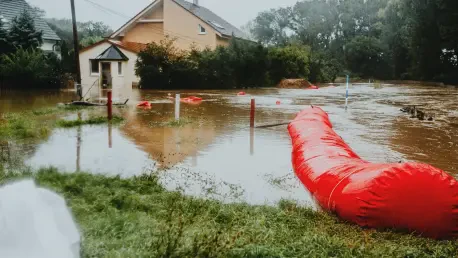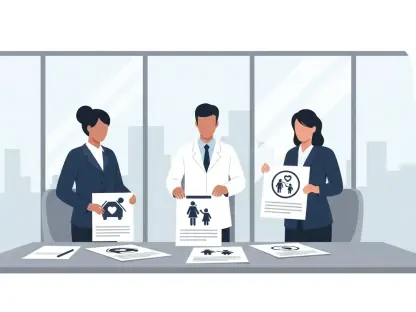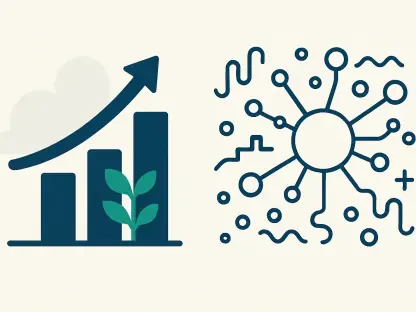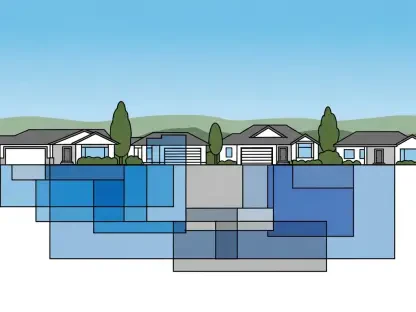In the wake of recent extreme weather events, the story of Kim and Bob Mayhew from Green Mountain serves as a poignant reminder of the importance of flood preparedness. Their home was engulfed by the waters of the North Toe River following the devastating impact of Hurricane Helene on Western North Carolina. Though they had homeowners’ insurance, they quickly realized it lacked adequate flood damage coverage. This oversight resulted in limited financial compensation, forcing them to depend heavily on FEMA assistance. Their predicament is not isolated; only a small percentage of residents in their area had flood insurance, highlighting a widespread lack of anticipation for such disasters. North Carolina’s Insurance Commissioner, Mike Causey, has since underscored the necessity of reviewing and enhancing insurance policies, particularly stressing the importance of obtaining flood coverage. The state has made efforts to assist affected residents with claim processes, yet the Mayhews’ experience starkly illustrates the unpreparedness for weather phenomena that can wreak havoc on communities.
The Importance of Comprehensive Flood Insurance
The issue of under-insurance is a significant concern in communities vulnerable to flooding. For homeowners in areas like Green Mountain, the expectation of assistance from typical homeowners’ insurance in the event of floods is a misconception that can lead to distressing financial consequences. Kim and Bob Mayhew’s experience reflects broader systemic gaps in insurance coverage; their reliance on FEMA aid was a stopgap rather than a solution. Many affected residents are finding themselves in similar situations, where they believed their standard policies would suffice. A major challenge is that obtaining flood coverage requires navigating through complex insurance options, often with a 30-day waiting period before activation. This delay can leave families vulnerable in the interim. Moreover, the general assumption that flood insurance is unnecessary perpetuates under-preparedness, compelling many homeowners to reassess the risks and consequences of residing in flood-prone areas without sufficient protection.
Flood events can have a catastrophic and far-reaching impact on affected communities, often taking residents by surprise in regions historically deemed less susceptible. The aftermath of Hurricane Helene, where only 3% of residents had flood insurance, starkly demonstrated the gravity of being uninsured. Mike Causey’s continued advocacy for comprehensive flood insurance shines a light on an essential but often overlooked precaution that could mitigate financial ruin during such crises. The call to action for increased insurance awareness is accompanied by initiatives to educate the public on the benefits of flood coverage, emphasizing preparation over reaction. Ensuring policyholders are well-informed about their coverage limits and potential risks is crucial for communities on the front lines of climate change. This requires a proactive approach, fostering a culture of preparedness that could ultimately protect lives and properties from unprecedented weather patterns.
Community Resilience and Volunteer Support
The aftermath of such flooding disasters often reveals the commendable resilience and solidarity within communities. In the case of Kim and Bob Mayhew, the generosity of a nonprofit organization provided them with temporary accommodation, highlighting the importance of community-based support systems. They currently reside in a donated camper while volunteers and organizations strive to reconstruct their damaged home. This act of altruism not only gives them shelter but also underscores the critical role communities play when institutional systems fall short. The volunteer efforts in Green Mountain illustrate how collective action can fill gaps, offering hope and assistance to those in despair. Grassroots initiatives, often spearheaded by local nonprofits, become lifelines, demonstrating a significant contrast to the often slow-moving government assistance programs.
While FEMA aid and state resources remain essential, the quick mobilization of local nonprofits often brings immediate relief. Their impact lies not just in physical rebuilding but in fostering emotional resilience among affected families. As discussions about long-term climate adaptation continue, recognizing and bolstering community-driven responses to disasters can be integrated into broader resilience strategies. Neighborhoods that prioritize mutual aid, preparedness drills, and emergency response training are better equipped to weather storms and rebuild in their wake. Moving forward, partnerships between government bodies and community organizations could catalyze more robust frameworks of support, ensuring that assistance reaches all those in need promptly.
Toward a Future of Better Preparedness
Recent extreme weather events highlight the crucial need for flood preparedness, as illustrated by Kim and Bob Mayhew’s experience from Green Mountain. Their house was submerged when Hurricane Helene unleashed its wrath on Western North Carolina, causing the North Toe River to overflow. Although the Mayhews had homeowners’ insurance, they soon discovered that their policy didn’t cover flood damage sufficiently. Consequently, they received minimal financial aid and had to rely significantly on FEMA support. This situation is not unique; only a small fraction of residents in their region carried flood insurance, reflecting a general unpreparedness for such disasters. North Carolina’s Insurance Commissioner, Mike Causey, has emphasized the need for thorough insurance policy evaluation and improving coverage, especially flood insurance. The state has worked to aid those affected in processing claims. However, the Mayhews’ story vividly demonstrates the community’s lack of readiness for severe weather events that can devastate entire areas.









